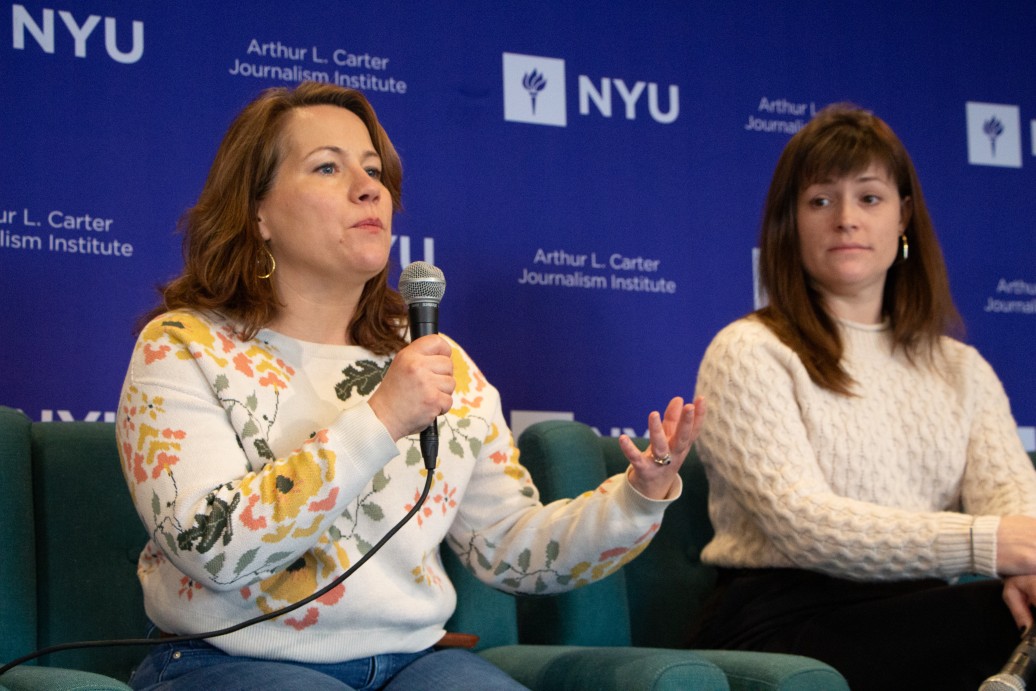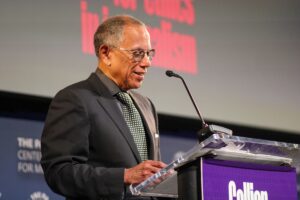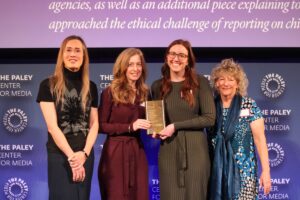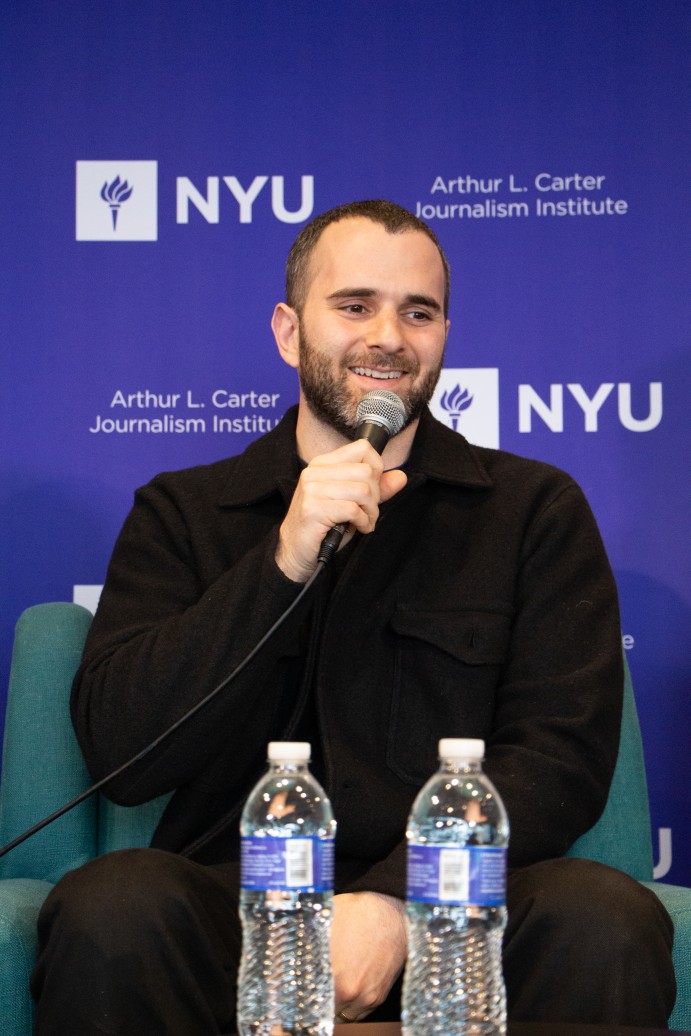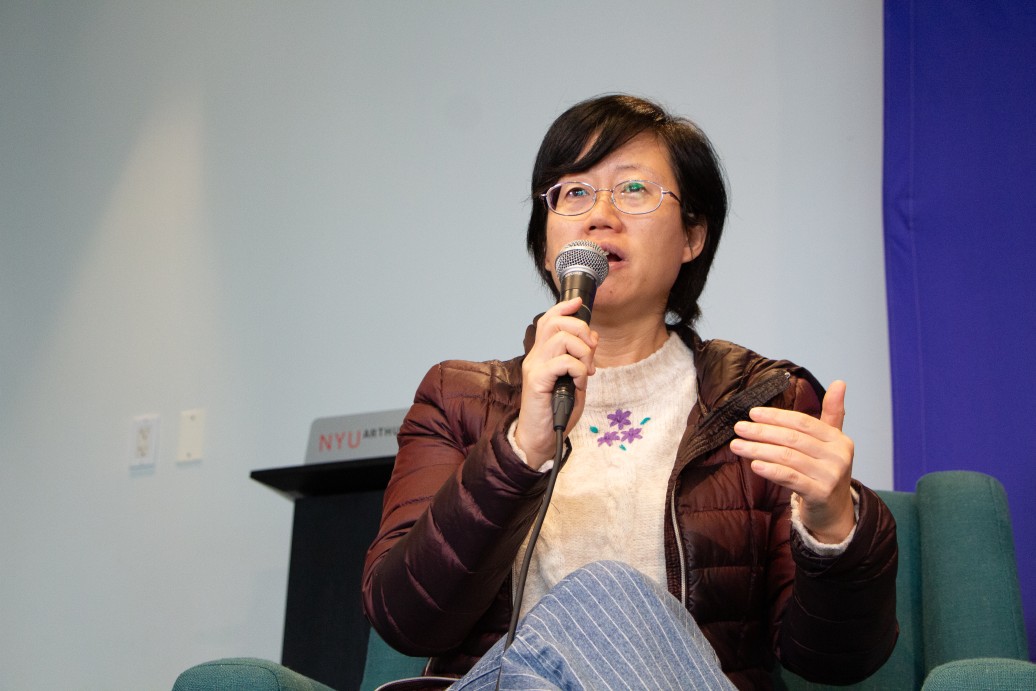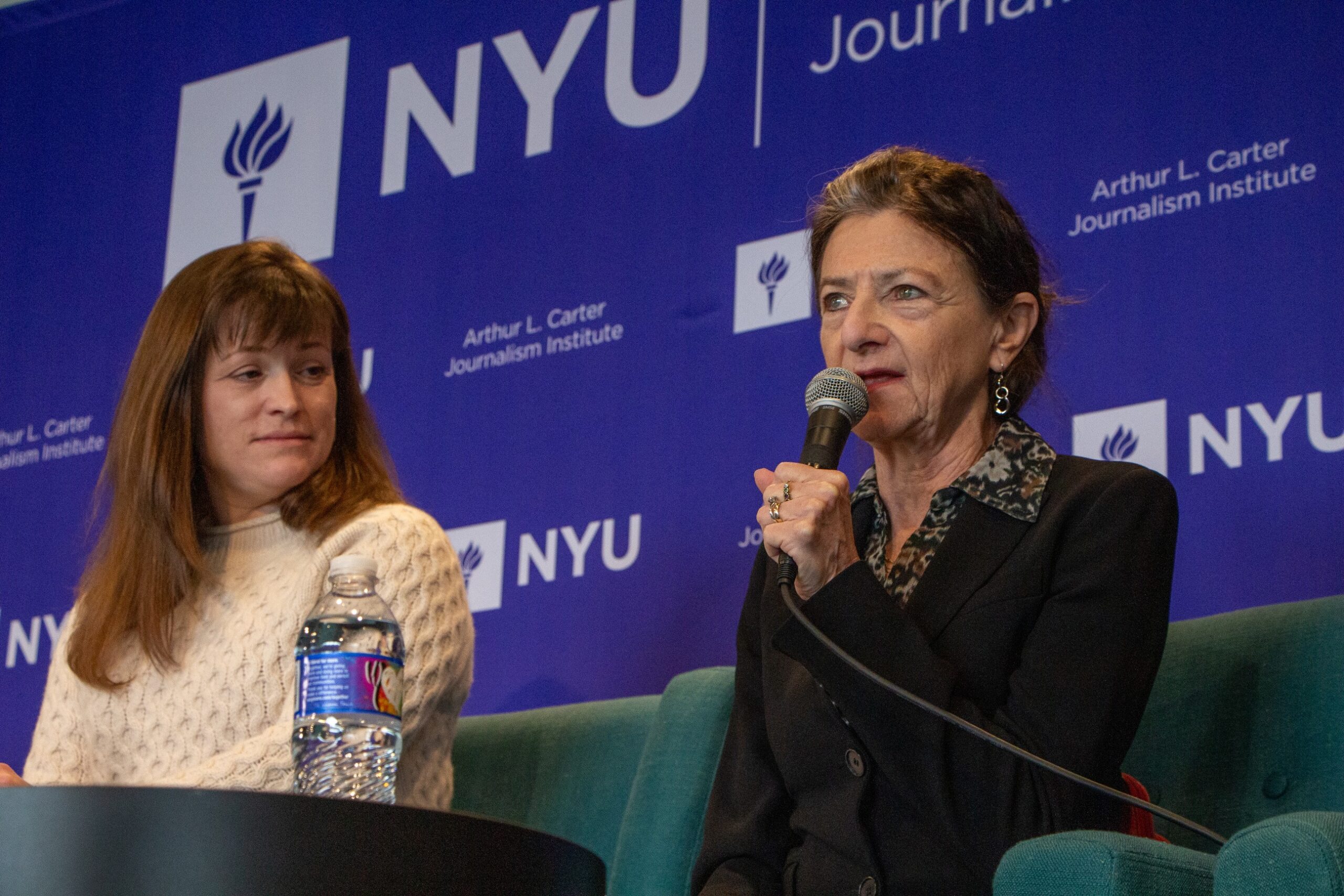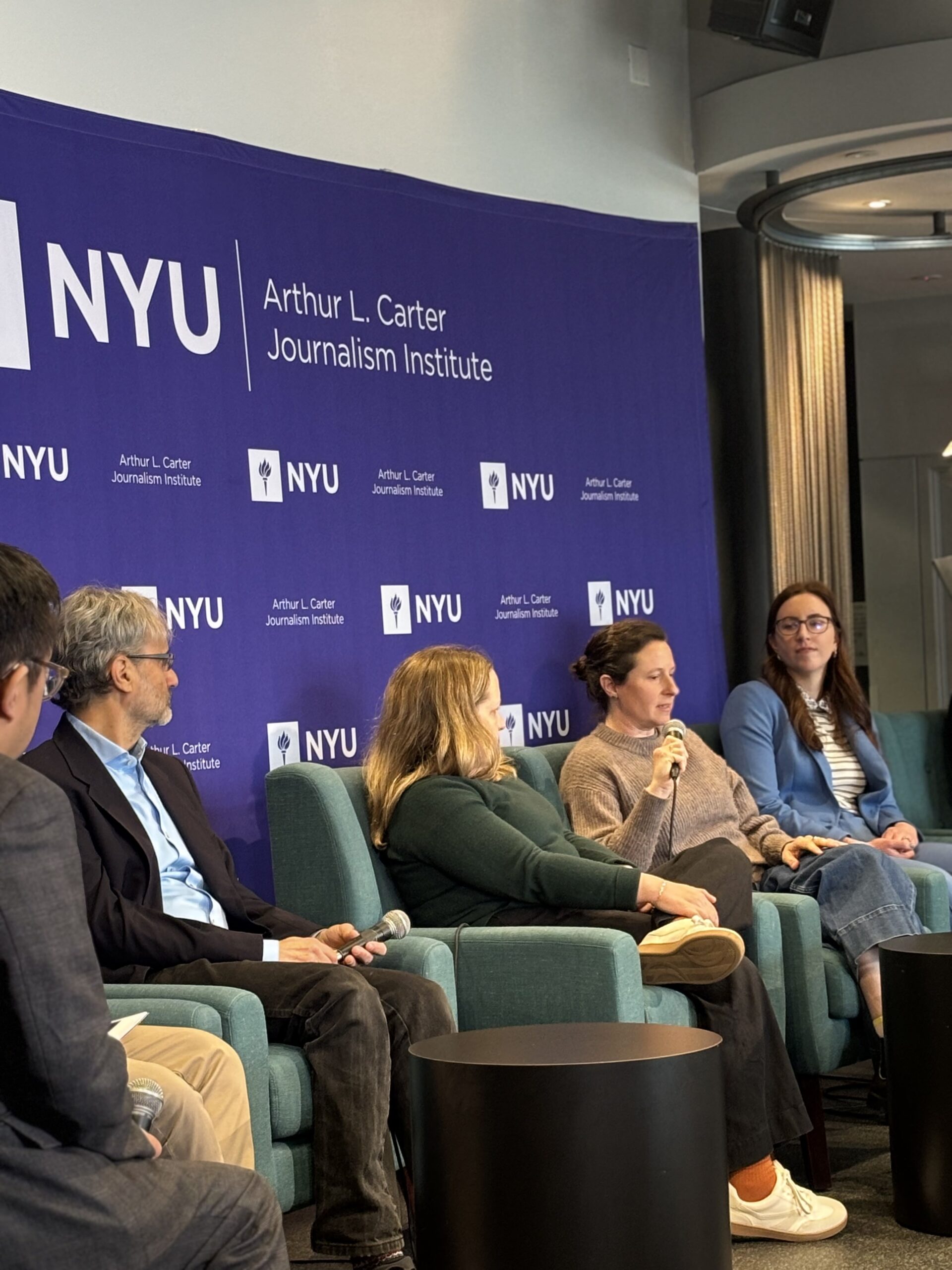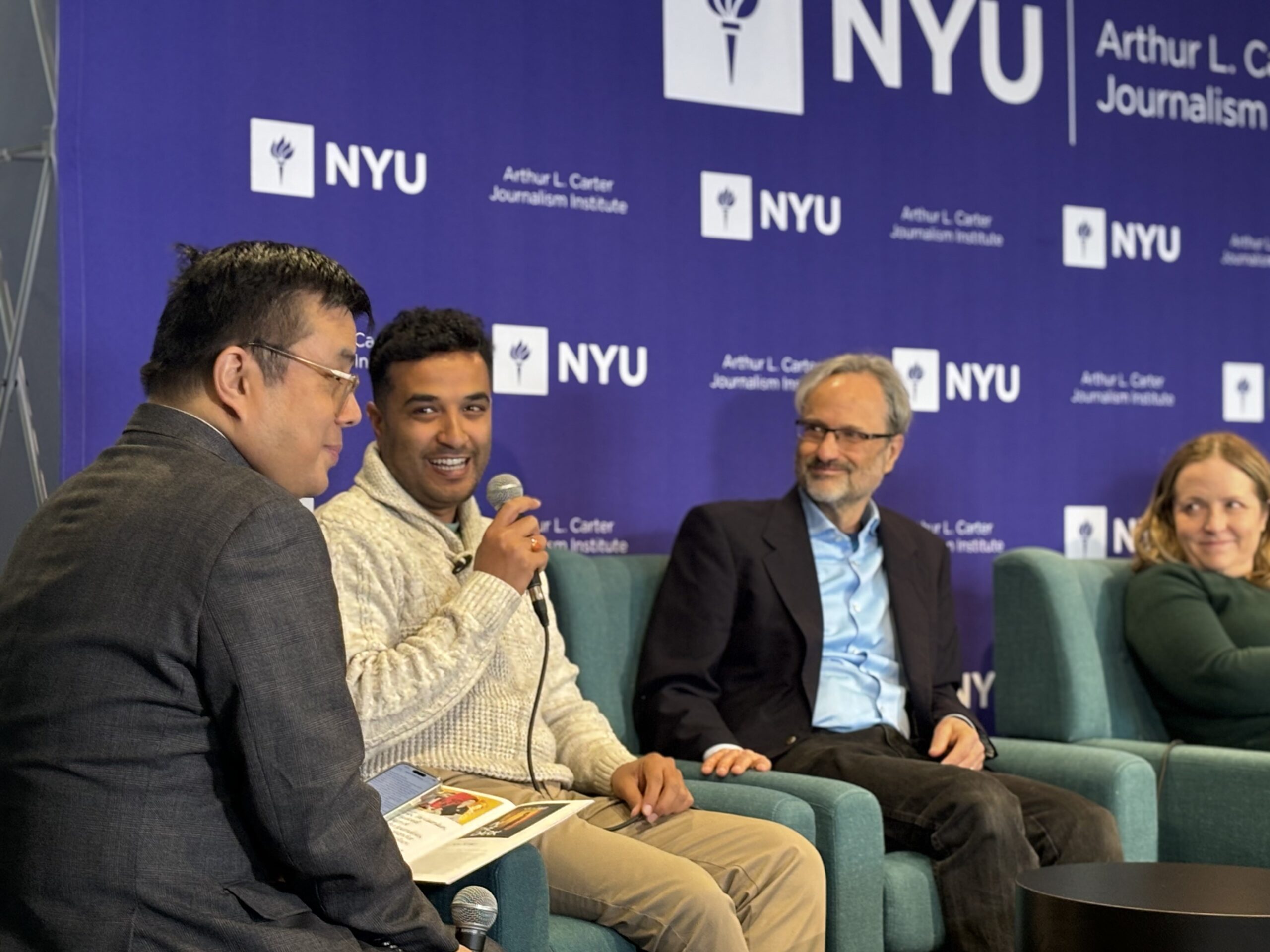Acharya and Lehren discussed Lehren’s decision to inform Amazon, at a relatively early stage of the reporting process, that the consortium had interviewed dozens of workers about illegal recruiting fees, squalid living and working conditions and potential labor trafficking. Even within the group working on the investigation, Lehren said, the decision to be fully transparent with Amazon in the midst of the investigation was “controversial,” since the company could have tried to obstruct or undermine the consortium’s reporting.
“Sometimes journalists may go through the motions but we really did want to hear what Amazon had to say,” Lehren said.
The company, which told Lehren it had never worked with such transparent journalists before, vindicated Lehren’s decision by confirming, early on, that the group’s initial on-the-record sources had been trustworthy employees, giving Acharya confidence to push on. Ultimately, Amazon agreed to establish a $2 million fund to compensate about 700 workers.
A panel led by Ethics and Journalism Initiative founder Stephen J. Adler focused on fairness in accountability reporting. The discussion among Mississippi Today Editor- In-Chief Adam Ganucheau and student journalists Garrett Shanley of the University of Florida and Cathy Wang of Johns Hopkins University revealed that rigorous investigative reporting requires thick skin and a strong stomach.
Wang, for instance, had to wait weeks for a response from the university to her query about the impact on local communities of the school’s real estate development projects. Wang sent detailed questions to Johns Hopkins officials but heard nothing back. Only after a month of repeated follow-up requests did she give an ultimatum to the school–provide a comment or we’ll publish without it – finally prompting a response.
Shanley was the first-place winner in the Collier student category for his expose in the Chronicle of Higher Education about a showdown between then-university president Ben Sasse and liberal arts professors concerned about a new, GOP-backed center for classical and civic education. Shanley painstakingly reconstructed the mounting tension between the professors and university administrators, using sophisticated reporting techniques to protect his sources.


